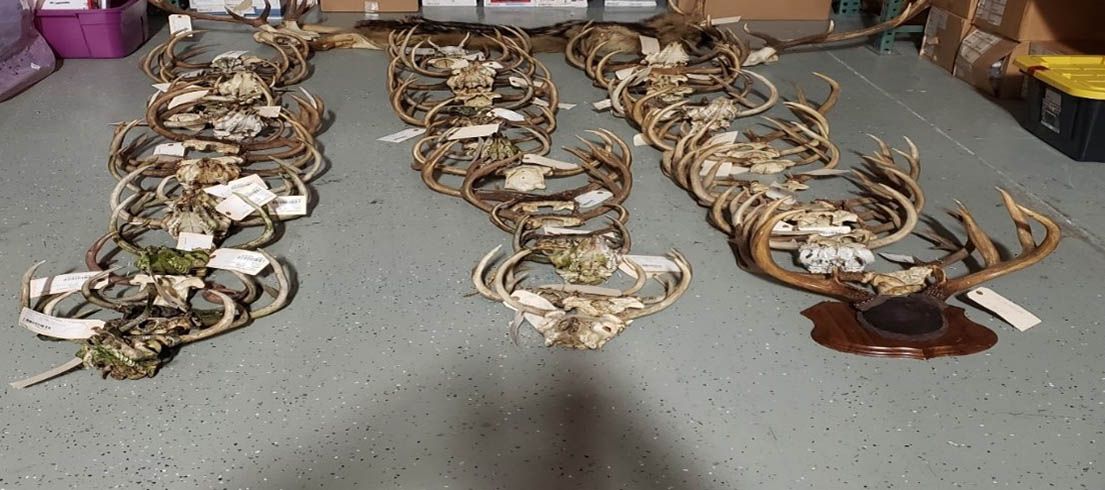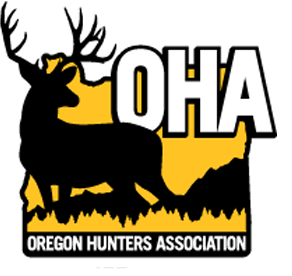
The Oregon Hunters Association is doubling down on efforts to fight poaching in Oregon by doubling the rewards paid to informants in fish and game poaching cases through OHA’s Turn in Poachers (TIP) reward program.
Poaching of big game can have serious consequences for wildlife. OSP Fish and Wildlife troopers often rely on information or tips provided by witnesses to poaching crimes. Since 1986, Oregon State Police, Oregon Department of Fish and Wildlife and the Oregon Hunters Association have collaborated on the Turn In Poachers (TIP) program which provides a cash reward to persons who report unlawful killing of wildlife, fish, upland birds and waterfowl and/or destruction of habitat.
One ODFW study of south central Oregon mule deer found that more were killed by poachers than were taken by licensed hunters.
OHA president and TIP coordinator Steve Hagan thinks that the TIP program is one of the tools that conservationists have to reverse the recent mule deer decline, “In light of the dire situation that mule deer populations are facing, this is one of the ways we can make a difference.”
In a recent five-year span, the TIP program paid out more than $100,000 in cash rewards for the resolution of poaching cases. Since 2018, informants have been offered the option of accepting hunting preference points in lieu of cash, and approximately half the informants have been taking advantage of that opportunity.
“I think we can get the attention of the non-hunting citizens of Oregon and inform them how to provide evidence of wildlife violations,” Hagan said.
Qualification for the reward depends upon the issuing of a citation by the OSP Wildlife Division for illegal taking of wildlife, fish, upland birds, waterfowl, and destruction of habitat. If the investigation by OSP finds insufficient evidence to issue a citation, no reward will be made.
Two new reward categories were added to help proactively prevent poaching before it happens: illegal spotlighting and snagging or attempting to snag.
If a citation is issued the standard amount of the reward may be as follows:
- Bighorn sheep, mountain goat, moose – $2,000
- Elk, deer, pronghorn – $1,000
- Bear, cougar, wolf – $600
- Upland birds, waterfowl – $200
- Furbearers – $200
- Salmon, steelhead, sturgeon, halibut – $200
- Illegally obtaining Oregon hunting or angling license or tags – $200
- Illegal spotlighting – $200
- Snagging/attempt to snag – $200
- Habitat destruction – $300
OHA and its chapters sometimes offer higher rewards for information in particularly heinous cases.
“OHA has continually and successfully pushed for tougher laws that increase penalties for poaching,” said OHA State Coordinator Duane Dungannon, who has signed the TIP reward checks for nearly 30 years. “OHA also provided the initiative for Oregon’s Stop Poaching Campaign and lobbied to secure funding for additional law-enforcement officers and a traveling poaching case prosecutor, as well as a poaching awareness campaign to involve the public in turning in poachers.”
To report a violation or suspicious activity, call the TIP Hotline: 800-452-7888 or *OSP (677) (available 24/7) or email TIP@state.or.us (monitored weekdays 8 a.m. to 5 p.m.)
This effort dovetails with ODFW’s Stop Poaching Campaign. According to campaign coordinator Yvonne Shaw, all Oregonians can help.
“We need all Oregonians to be our eyes and ears in the fields, forests, water, and beaches of Oregon; the health and future of our wildlife depend on it,” Shaw said. “Hunters and anglers are very invested in reducing poaching and supporting wildlife populations because they want to preserve the resource for future generations. It’s a way of life they wish to pass on to the next generation.”
The TIP reward fund is mainly supported by court-ordered restitution from convicted poachers and individual donations. For more information or to make a donation, visit https://oregonhunters.org/turn-poachers-tip/
OHA (oregonhunters.org) is the state’s largest Oregon-based pro-hunting organization, with 11,000 members and 26 chapters statewide. Its mission is “protecting Oregon’s wildlife, habitat and hunting heritage.”
